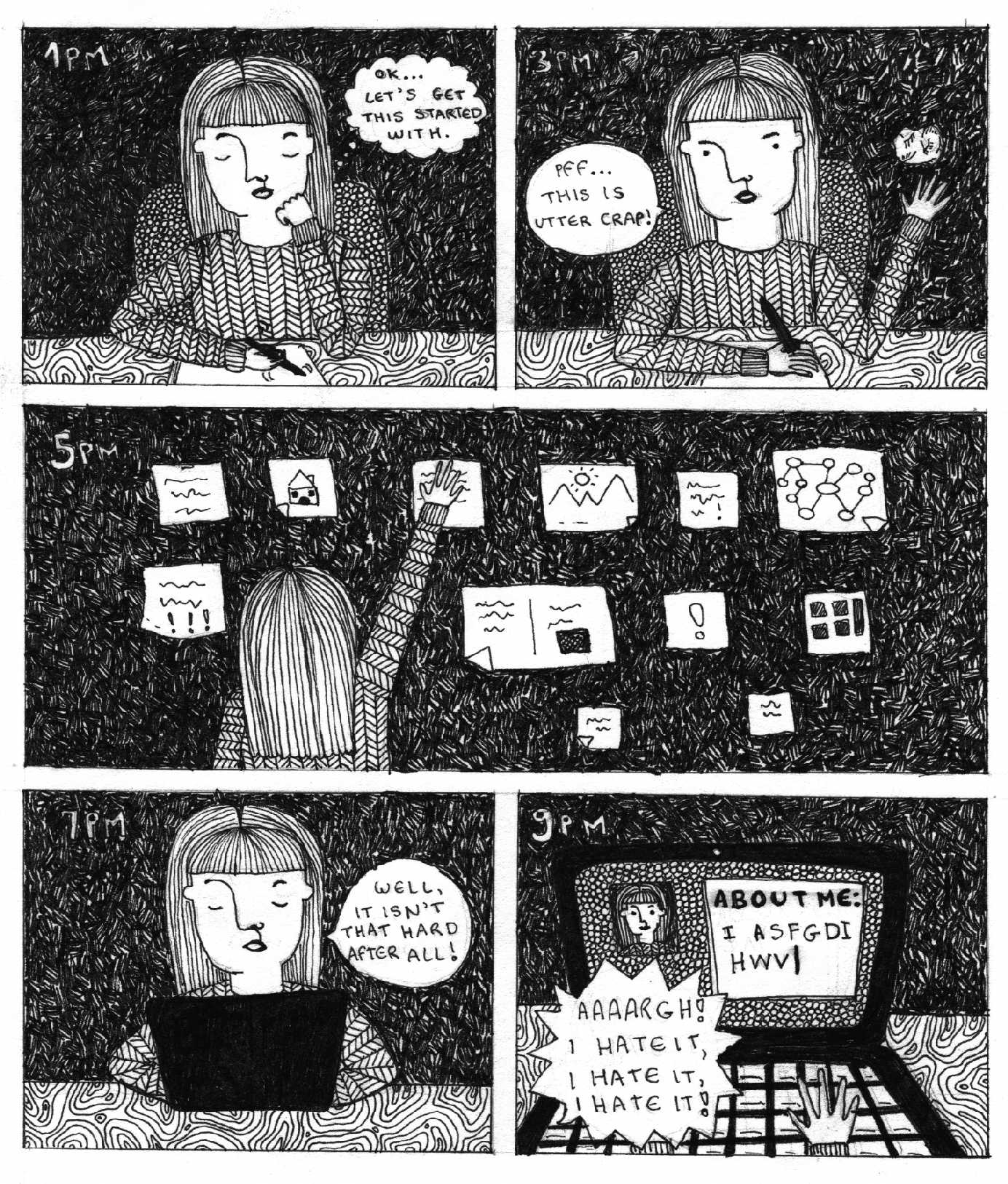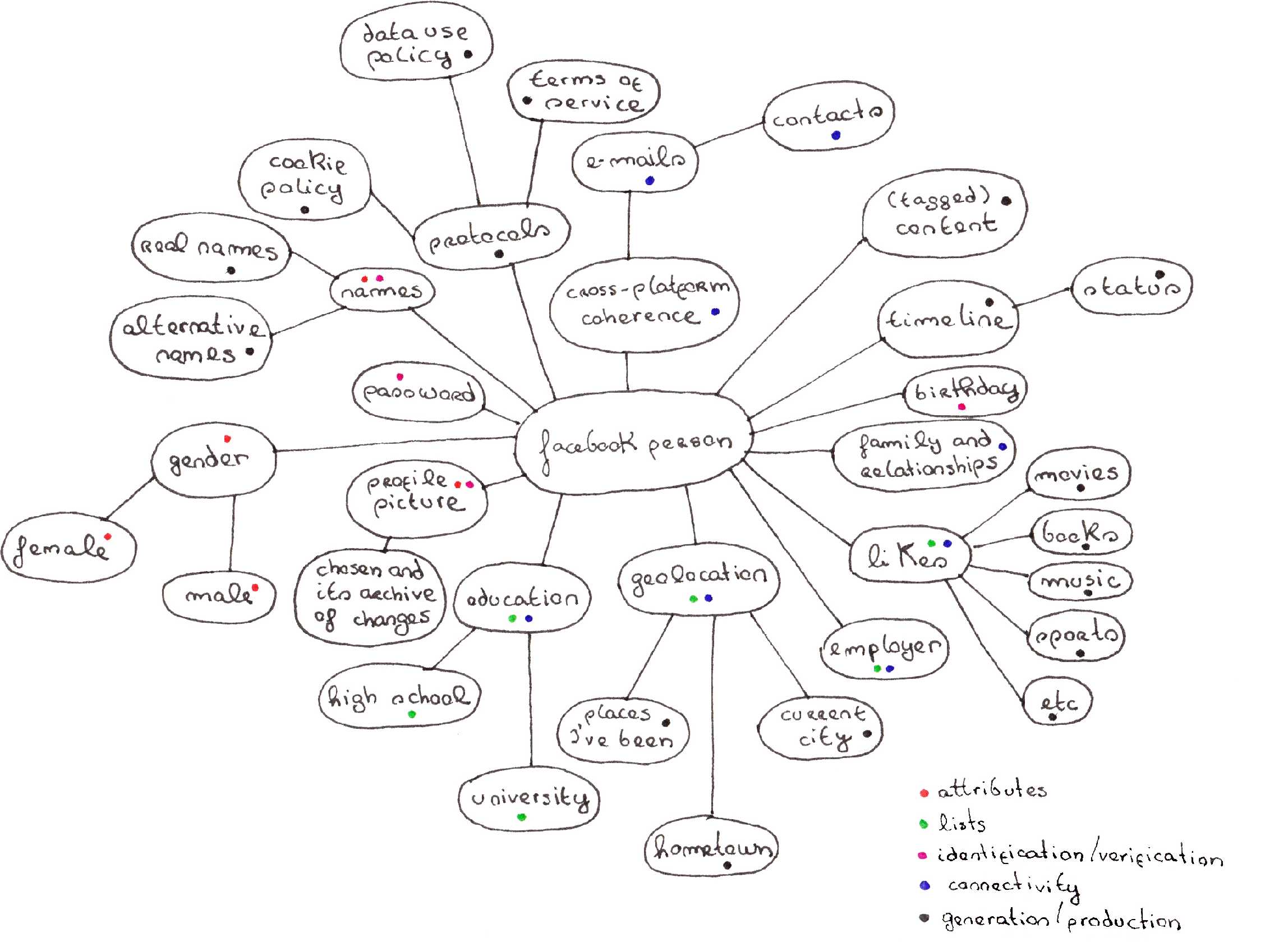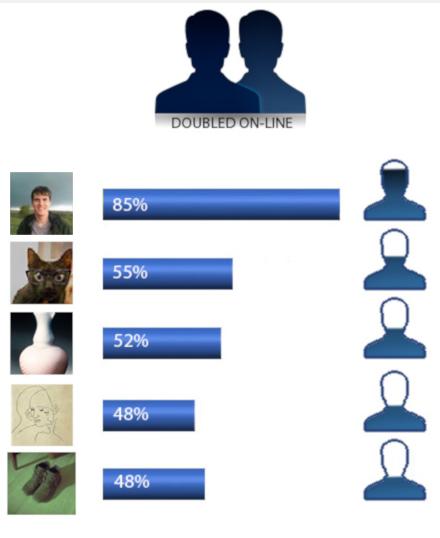The hedonistic dotcom excesses at the turn of the millennium were over by the 2001 financial crisis and 9/11 attacks. The War on Terror aborted the desire for a serious parallel ‘second self’ culture and instead gave rise to a global surveillance and control industry. To this assault on freedom, Web 2.0 tactically responded with coherent, singular identities in sync with the data owned by police, security and financial institutions.
Within Facebook there are no hippie dropouts just a pathological dimension of commitment to the Real Self going hand in hand with the comfort of being only amongst friends in a safe, controlled environment. No punks or criminalized migrant street culture either. Differences of choice are celebrated so long as they’re confined to one identity. Facebook CEO Mark Zuckerberg puts it like this: “having two identities for yourself is an example of a lack of integrity.” Says venture capitalist Peter Thiel, “Facebook rival MySpace is about being someone fake on the Internet; everyone could be a movie star.” Thiel considers it “very healthy that the real people have won out over the fake people.” As a result there is little freedom anymore to present yourself in multiple ways online. Social networking sites, anticipating this movement towards security (one identity) coupled with by our personal desire for comfort, offer their users a limited, user-friendly range of choice for submitting private and professional data to the world.
The public pressure to refrain from anonymity cannot be countered without a better understanding of the ‘self management’ manifesting in online portfolios, dating sites and Facebook.iv In the Web 2.0 age the drive to self-realisation is deeply embedded in society. According to Israeli sociologist Eva Illouz, the modern self is an autonomous entity incapable of valorising itself, enmeshed as it is in social and political structures. Social media should be seen as only the latest incarnation of these institutions. In her 2007 book Cold Intimacies Illouz illustrates how capitalism has been turned into an “emotional culture”, contrary to the commonly held view that commodification, wage labour and profit-driven activities create ‘cold’ and calculated relationships. She describes the rise of “emotional capitalism” within a public sphere saturated with the exposure of private life (and vice versa, the ‘hot distance’). Through the service industry, affect becomes an essential aspect of economic behaviour—and a fashionable object of contemporary theory. According to Illouz “it is virtually im- possible to distinguish the rationalization and commodification of selfhood from the capacity of the self to shape and help itself and to engage in deliberation and communication with others.” There is a narrative in the making, says Illouz, which aspires to self-realization, and that plays itself out within institutional and semi-public settings such as the self-help sector and online platforms. “The prevalence and persistence of this narrative, which we may call as shorthand a narrative of recognition, is related to the interests of social groups operating within the market, in civil society, and within the institutional boundaries of the state.”
Illouz emphasizes that it becomes harder to distinguish between our professional and private self. In the competitive networking context of work, we are trained to present ourselves as the best, fastest and smartest. At the same time we are aware that this is only an artificial, made-up image of ourselves and that our ‘real’ self is different which is what celebrities have been grappling with for decades.
In a Skype interview I did with Illouz, she stressed the long-term decoupling of private life from the private sphere. She said: “We should not blame technology for the loss of private life. The pornofication of culture and the political- economic push for increased transparency of private life have been on the rise for decades, and the internet has only institutionalized these trends.”
There might be three ways to counter the self-promotion machine. One way is to disrupt its self-evidence. Talking about the dark side of positive thinking is a first step to recover from the mass delusion of smile or die, and more effective than simply joking about the absence of a ‘dislike’ button in Facebook or about the one-dimensional representation of relationships where ‘friending’ is the only option.
Another way out is to dismantle the consumer desire that drives the self-promotion machine to begin with. In this argument the marketing of the self is not so much a narcissistic venture aiming to satisfy one’s inner needs but is primarily powered by the fast consumption of objects external to us, the unstoppable drive to collect more and more stuff—from friends and lovers to brand products, services and other quasi-exclusive short lived experiences. It has become irresistible to not sign up, in part because of the ruthless way the Facebook algorithm contacts potential new users for instance via inported email address books, inviting them to become your friend. This is the naïve model of eternal growth promoted by Facebook’s or Twitter that never stop measuring you by your amount of tweets. To live a tweetless life is constructed as not living.
The third way to dismantle the performance of the self and self-disclosure is to revisit anonymity in today’s context. The question is how to re-imagine anonymity not as an attainable categorical state, but as a way to recoup an energy of metamorphosis, the desire to become someone else.
In 1929 Virginia Woolf wrote in A Room of One’s Own: “I would venture to guess that Anon, who wrote so many poems without signing them, was often a woman.” In the context of social media the question is how to integrate offline acts into the equation without turning the real world into the next snobbish wave. Can the existing platforms only be used in the shadow of events to come? Networks prepare the groundwork through their ‘weak links’; it’s what they are good at. Their role in real-time communication, once events unfold, remains overrated. If everything worked out networks would have already kicked-off the erosion of existing power structures. What will happen once we overcome the fear of surveillance and control? Will anonymous action, like voting in public elections, no longer be necessary because that information will be publically available by other means? Or should we remain cautious and see the carnaval balle masque as the temporary state of exception?
(Taken from “Anonymity and the Self”)




